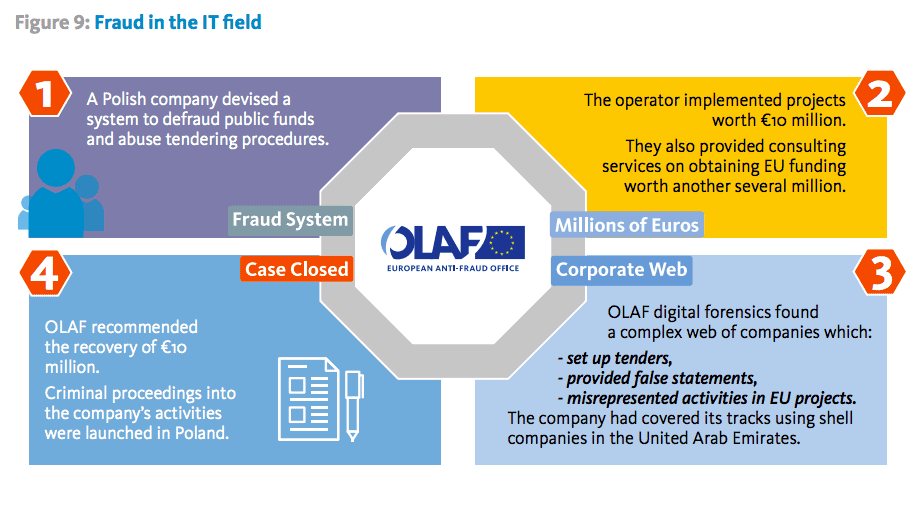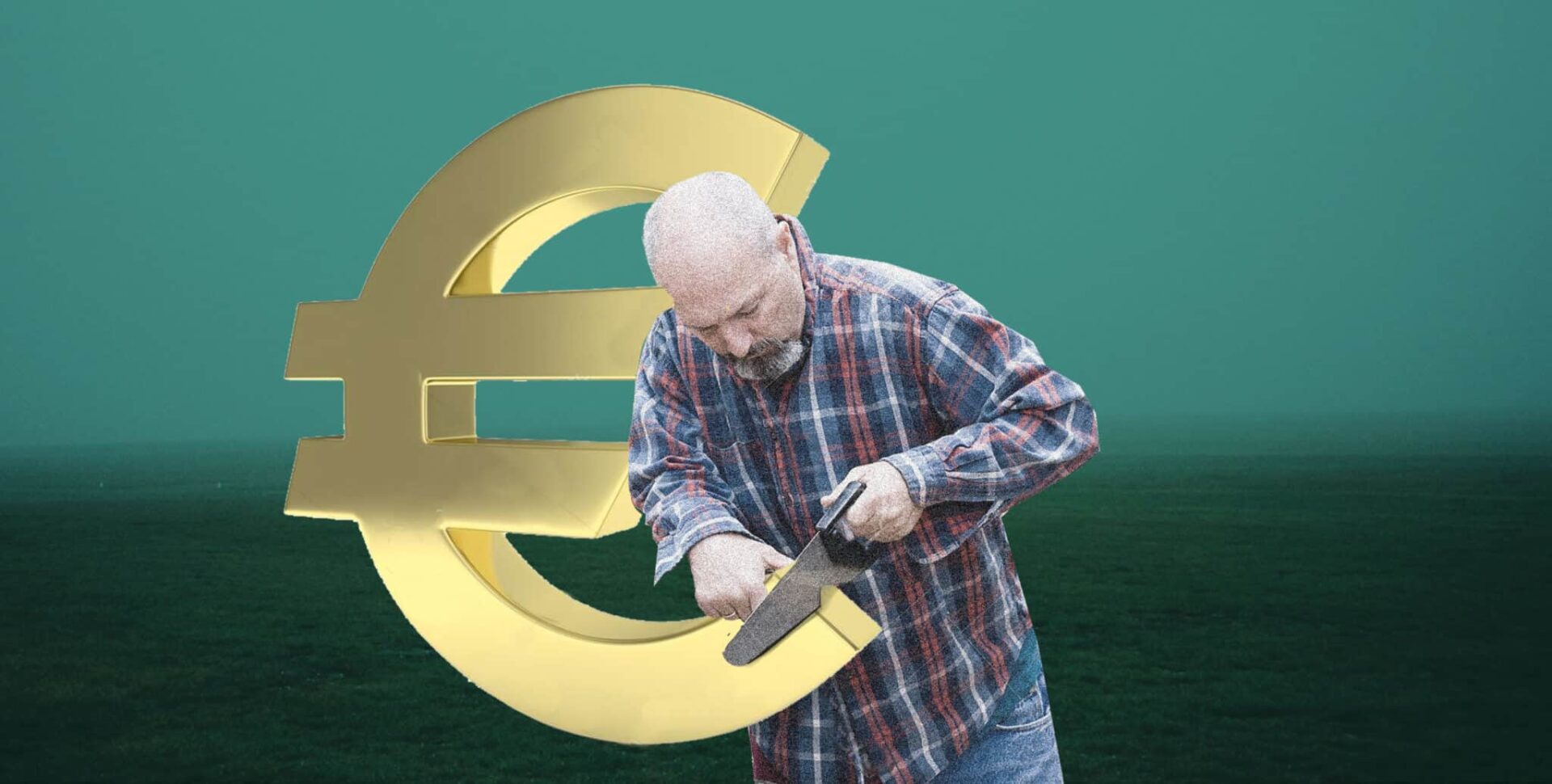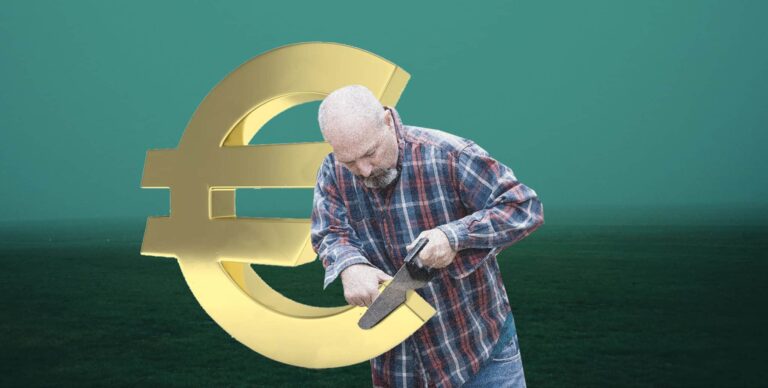Though the European Anti-Fraud Office (OLAF) prepares comprehensive activity reports every year, it provides almost no information about recently disclosed crimes. Neither do the Polish authorities communicate openly and comprehensively about the nature and extent of EU subsidy frauds in the country.
Attempts at obtaining information from the OLAF press office are usually long and arduous processes: OLAF guards its secrets closely, its riddle-like answers are usually terse and lacking in detail.
In mid-February, we found out that the District Prosecutor’s Office in Zamość was investigating irregularities in the settlement of the business expenses of some Polish members of the European Parliament (MEPs). We reached out to OLAF with several basic questions: is OLAF aware that the Polish Prosecutor’s Office is investigating fraud that involves EU funding? Is the Polish Prosecutor’s Office conducting the proceedings because of a OLAF’s investigation? And how does OLAF cooperate with law enforcement authorities in the EU member states? We also asked whether OLAF is cooperating with the Zamość Prosecutor’s Office on this specific case, and against which members of EU parliament, specifically, the proceedings were initiated against.
The office’s press service responds quickly and efficiently but is careful not to reveal very much. “OLAF is aware of the case conducted by the Polish prosecutor, which was started based on OLAF’s judicial recommendation resulting from an OLAF investigation. The Polish case is the follow-up to this same OLAF investigation. OLAF also made a recommendation to the European Parliament to recover amounts unduly spent. Given the fact that the matter is pending in Poland and before the European Parliament, OLAF cannot make any further comments at this stage,” its official statement reads.
The case being investigated seems serious: the Polish Prosecutor’s Office qualifies them as “misadministration of assets in connection with submitting claims for the reimbursement of business travel expenses.” So, hoping to determine which Polish MEPs in particular are being investigated by OLAF, we turn to Piotr Wolski, Poland’s press officer in the European Parliament Liaison Office. We ask him a similar set of questions, and press him on what kind of irregularities were detected by the EU investigators, as well as whether any of the cases had been concluded.
Given the vagueness of the information we’d received from OLAF, Wolski was unable to provide any further details. We learn, though that we may be able to get more details from the European Parliament if we can determine the date on which OLAF sent its recommendations to Brussels. So we need to go back to OLAF.
“OLAF sent its recommendations concerning this case in May 2019,” OLAF tells us. We try to use this opportunity to confirm the identity of the MEPs under investigation, but the office responds in its usual fashion: “Given the fact that the follow up by the EP has not been finalized yet, OLAF cannot make any further comments at this stage.”
A reply finally arrives from Wolski, but it mirrors the one we’ve just received from OLAF: “The proceedings regarding suspected misuse of funds for delegations by some MEPs are conducted by OLAF. This organisation operates in complete independence from the European Parliament and all other institutions of the European Union. OLAF sent the EP its conclusions and recommendations to the European Parliament, which rules whether further proceedings are necessary, including a request for reimbursement of sums spent unlawfully.”
Neither Wolski nor OLAF had anything more to add, so which MEPs are under investigation, and what the inquiry specifically concerns, remains unknown.
There are, however, some cases conducted by OLAF concerning EU funding in Poland that came to light, if only dim light.
How politicians obtain subsidies
In the past several years, the media has reported on a couple of scandals involving Polish politicians defrauding the EU. The most famous of these concerned at climate conference organised by the Polish political party Solidarna Polska (United Poland), which is part of the ruling coalition government. The party is headed by Zbigniew Ziobro, the current Minister of Justice and Prosecutor General.
In 2013, United Poland, which was at that time an opposition party, organised a conference in Cracow that was attended by almost 1,000 people. On paper, the participants gathered to discuss climate issues, for which the party received EUR 40,000 from the European Parliament. But the issue of climate failed to come up over the course of the event. It instead served as a pre-election congress for Solidarna Polska. When the event was reported on by weekly news magazine Newsweek Polska, documents and videos from the conference disappeared from the Internet.
The Prosecutor’s Office, which has been headed by Ziobro since 2016, investigated the incident over the course of several years. But instead of focusing solely on Solidarna Polska party, it extended the scope of the inquiry to include congresses run by other political parties – despite the fact that the media hadn’t reported any fraud related to other congresses. In October 2019, the investigation was quietly discontinued, with the office concluding that no irregularities took place. The investigation by OLAF, however, is ongoing.
Polish media has also reported on the case of PiS MEP Janusz Wojciechowski, who was forced to account for irregularities in his travel expenses before the European Parliament when applying for the portfolio of EU Commissioner for Agriculture. It came to light that OLAF was investigating his case, and Wojciechowski was ultimately asked to return EUR 11,000 to the European Parliament. He was subsequently elected to the post. Cases like Solidarna Polska’s and Wojciechowski’s were made prominent by the media, but the defrauded amounts in question were fairly small in comparison to cases where the money was taken on the alleged grounds of funding the development of Polish companies.
In one case described in the 2018 annual report, an informal cartel-like collection of Polish companies, primarily in the IT sector, won EU tenders worth an estimated 10 million euros that OLAF believes were “likely” affected by fraud and irregularities. The case resulted in eight OLAF investigations in Poland, three of which resulted in the instigation of criminal proceedings.

Fraud in the IT field in Poland, as described by OLAF
Fraud. Judgement? A single ruling
Poland has several offices that should help OLAF detect fraud, including the Public Funds Audit Department (DAS) at the Ministry of Finance, as well as the Polish Agency for Enterprise Development (PARP). DAS has been responsible for cooperating with OLAF for three years. From information obtained by VSquare, the office appears to have launched investigations “to protect state interests” regardless of OLAF’s involvement. It initiated eight such investigations in 2017, 19 in 2018, and 20 in 2019.
PARP – a key institution that grants EU subsidies to small and medium-sized companies, also has a role in overseeing how EU funds are spent. Since 2010, the agency has submitted 74 notifications to the Prosecutor’s Office that warn that fraud may have taken place in a given grant or by a company overseen by the office.
How has the Prosecutor’s Office responded to reports coming out of PARP? The data obtained by VSquare at the beginning of February shows that proceedings are still pending in 30 cases; but that another 21 cases have been discontinued. In one case, the court acquitted the defendant, while in another, it ruled that another defendant was responsible for the fraud in question. In eighteen instances, the Prosecutor’s Office refused to initiate proceedings at all because it concluded that no crime had been committed. Of the cases that are still pending, the largest amount of potentially defrauded EU money amounts to PLN 39.2 million (EUR 9.1 million).
In the reports filed with the Prosecutor’s Office, PARP most often accuses the companies, business owners, board members, employees and companies that were direct or indirect recipients of EU funds of a range of crimes, from “providing false information to bring an entity to undertake disadvantageous spending”, to “obtaining subsidies after attesting untruth in documents”, and to “using documents that contained false information”.
The few things we know
Using OLAF’s recommendations, VSquare have track down several specific cases of EU fraud, that were reported to the Polish Prosecutor’s Office.
One investigation currently being pursued by the Prosecutor’s Office in Siedlce is investigating EU funding obtained by an agricultural producer group from northern Poland that grows and processes vegetables. According to the Prosecutor’s Office, the group inflated the cost of the investment using fraudulent VAT invoices, potentially defrauding the EU of over PLN 50 million ( EUR 11.6 million).
This case joins several other similar cases of fraud, investigations for which were launched by the Siedlce office without any prompting from OLAF, concerning an estimated PLN 400 million (EUR 93 million). “These things are just starting to come out now. It is interesting because someone had previously verified that funding,” Tomasz Giza, the head of the Department of Investigation at the District Prosecutor’s Office in Siedlce, told VSquare.
The Prosecutor’s Office in Warsaw, meanwhile, has spent a year and a half investigating a case concerning up to PLN 23 million (EUR 5.3 million) of EU funding fraudulently earmarked to develop and implement new IT software solutions. Through sources in the prosecutor’s office, VSquare has determined that the case involved a Polish IT firm.
The case was flagged by the tax administration, which warned that the cost of the project and work had been overinflated and pointed to discrepancies between the project plan and its actual implementation. The Prosecutor’s Office has alleged that the fraud involved “submitting unreliable and untruthful documents when applying for funding”; for example, one of the companies claimed to have some market experience, though it didn’t.
In Poznań, the regional Prosecutor’s Office is also pursuing a case flagged by OLAF’s audit, which concerns a company that received a PLN 38 million (EUR 8.8 million) subsidy through PARP to purchase “an innovative production line for the production of steel poles using laser technology”. The investigation, which is still ongoing, is currently drawing upon company registration information and data from Switzerland, Italy, and Germany, according to the office.
According to the Prosecutor’s Office, PARP employees were misled by the beneficiary’s representative in regards to tender procedures and their decisions were influenced by unreliable documents.
Other cases being investigated by Polish prosecutors involve alleged breaches of tender conditions, and the organising fictitious bids.
Failed to confirm OLAF’s allegations
Not all cases flagged by OLAF have been confirmed as fraudulent by Polish prosecutors.
Following a 2018 notification by OLAF, the District Prosecutor’s Office in Szczecin investigated allegedly fraudulent conduct by the University of Szczecin, which obtained subsidies from the 2007-2013 EU budget.
Irregularities in the university’s use of funds allegedly included overestimating the cost of services, closing out “economically unjustified” contracts, and issuing and accepting unreliable financial documentation. In December 2019, however, the case was discontinued, with the prosecutors deciding that the investigation had failed to confirm OLAF’s allegations, concluding that regulations had not been violated.
Not in the official statistics
Over the past 15 years, Poland received EUR 163 billion from the EU, and the sum of the potentially defrauded funds is therefore very small. But estimations of how much in EU funding has been defrauded typically leave out cases where those accused of fraud were acquitted or otherwise let off the hook by judges.
One such case concerned the collusion between large foreign companies that were involved in tenders for the construction of sections of an expressway and a motorway. In 2009, Polish special services discovered that the companies rigged the prices outlined in the tenders, but the case ended with the court overturning the prosecution’s findings on procedural grounds: ruling that the measure used by the secret services to uncover the crime — namely, secretly listening in on the managers involved — were conducted without permissions required by Polish law.
Wiretapping was also used by the Polish secret service to uncover that The Ministry of the Interior and Administration accepted bribes relating to large IT projects commissioned by the government. Though the Ministroy’s director pleaded guilty and was convicted in court, the Prosecutor’s Office ultimately decided that the case didn’t constitute as major corruption as the recipients of the tenders would have likely won them regardless.
The European Union also decided that neither the bloc nor the Polish State Treasury suffered major damage in either of the two cases, and Poland avoided facing an EU subsidy freeze.
According to VSquare’s analysis of OLAF reports, news reports, and court files, the total amount that has been defrauded from the EU by Polish beneficiaries could reach into the hundreds of millions of euros. What is the precise number? That remains unknown.
This text was financially supported by GACC (The Global Anti-Corruption Consortium) aimed at the Visegrad countries. Member centers Átlátszo and Direkt36 from Hungary, Fundacja Reporterów from Poland, Ján Kuciak Investigative Center from Slovakia and investigace.cz from the Czech Republic are working on the project.
Konrad Szczygieł is an investigative journalist at FRONTSTORY.PL. Previously, he was a reporter at Superwizjer TVN and OKO.Press. Since 2016, he has worked with Fundacja Reporterów (Reporters Foundation). He was shortlisted for a Grand Press award (2016, 2021) and an Andrzej Woyciechowski award (2021). He is based in Warsaw.







